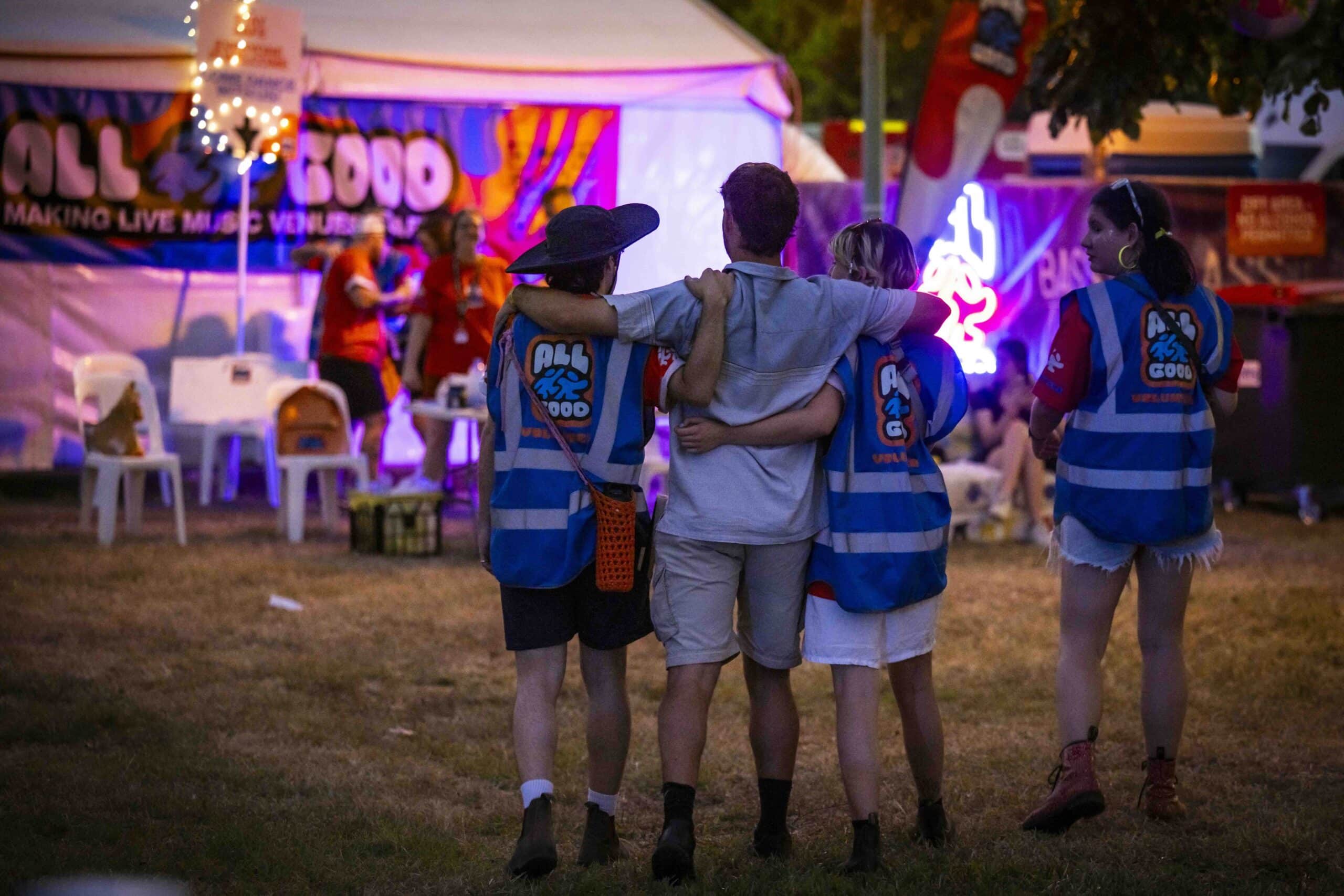In an industry that’s all about ‘being seen’, how does it feel when the visibility and exposure is all too much?
Nkechi Anele, a multifaceted creative of Nigerian-Irish heritage who grew up in Melbourne/Naarm and has spent over a decade in the music industry, and Cyrus Villanueva, a Sydney-based artist, music producer and songwriter, share their experience with anxiety in their career.
What was your first experience of anxiety?
Nkechi Anele – I think i have always had anxiety throughout my life but, it first came to a head the night before I left for the US with my band.
Cyrus Villanueva – I first experienced anxiety about 4 years ago. I was at a point in my career where the pillars I had built and relied on in order to understand how I was navigating and understood the industry around me started falling. It was a completely foreign feeling. I was never anxious or depressed in my life when I was younger, and because I couldn’t understand it, it paralysed me. I wanted to just stay curled up in bed with my girlfriend at the time, and I would try (in hindsight, too much) to avoid it and get rid of it, instead of accepting it and learning ways to manage my relationship with it.
What does anxiety feel like for you? And when/where does it show up most often?
Nkechi – Anxiety feels like sheer panic, hyper awareness, fear of feeling on edge, shame and the exhaustion of masking as if I am feeling normal.
Cyrus – Physically it feels like nervous butterflies. Mentally it manifests itself in overthinking, a negative self image, I adopt a pessimistic perspective about the world, the people around me, and my future, and it becomes very mentally debilitating. It shows up if I slip from my (recently adopted) discipline of taking care of myself by doing healthy things I enjoy OUTSIDE of music ie: exercising, sleeping well, eating well, seeing loved ones, going out to new places, going to the beach, reading, listening and studying intelligent conversation in the form of Youtube videos or podcasts etc.


Was there a specific time, working in music, that you recall your anxiety being at an all-time high?
Nkechi – When bands start to fall apart and members are kicked out. It is the most gut renching time to be in a band, especially one that has been so formative and familial to who you are. There was a lot of secret keeping and bad communication, venomous conversations and drinking to numb things out. At this time, I also felt the most isolated and alone. It was not fun.
Cyrus – I was at a point working with a major label and the heat and excitement of my project post X Factor had died down. It was the first time where the weight of the direction and future of my artist project was in my hands. But I didn’t have a very good grasp of who I was – as a person let alone as an artist – and that expectation of needing to BE something I didn’t know how to BE, became extremely overwhelming.
What motivated you to seek help to treat your anxiety?
Nkechi – I knew the experience of being in a band was not normal and there were a lot of bad habits that I had developed over the years as coping mechanism that weren’t working for me anymore. I fell into a a scary place with my anxiety where I felt like I had lost control of my emotions and ability to mask—I was unravelling. I was lucky to have a supportive network of friends who had had somewhat similar childhoods as myself. When we hit 30 we all discussed how we wanted to let go of the tools we had developed to get through childhood that were no longer useful as adults. Through open communication and friendship we collective worked on finding good psychologists and started the process of healing and untangling ourselves.
Cyrus – As I’ve gotten older, I’ve learnt a lot about the concept of “accepting things out of your control”. It is possibly the single most important piece of advice that took me on a great path in learning how to manage my mental health. At the moment, I’m in a place that is less about rescuing myself when I’m anxious, and more about focusing on ways to manage my relationship with anxiety – something I accept as inevitable and out of my control – and learning habits I can adopt in my life to make those anxiety waves less intense, less frequent, and use it in a positive way by changing my perspective and analysing the reasons WHY I’m anxious.


What info and strategies have been the most helpful for you in managing your anxiety?
Nkechi – Getting a pet, having something to be responsible for (that is also super cute!!!)
Exercise has always been a great outlet for me, mindfulness is not my vibe.
Talking to people and being honest.
Recognising the signs of a burnout and forgiving yourself for checking out.
Professional help, especially from a psychologist (if you can afford one), not a cousellor (although they might be the best place to start).
Cyrus – Talking about it with people who experience it in the way that I do, talking about it with people who have a better understanding of anxiety than I do, accepting that sometimes I’m going to get anxious and that’s OKAY, accepting that everyone in the world has / does experience anxiety, acknowledging it means no harm and that it is a response to something going on in my life, adopting healthy habits and routines that prevent it, and all round just not taking life too seriously.
Any final words to share?
Nkechi – We are constantly figuring out who we are an no one has it right or 100% set in stone. It is ok to be lost.
Cyrus – All in all, anxiety isn’t a great thing. But you can analyse your perspective on it to become a better person. I see life as a journey of learning, growth, change, inevitable lows, short-lived highs, and blissful peace that lives somewhere in the middle. The more you can focus on being the best version of yourself, the better you can contribute to not only the external world, but your internal experience of it. Just like joy, sadness, anger and fear, anxiety can be experienced as a tool to help guide you, and knowing everyone who has ever lived has felt that same feeling is enough for me to try my best to not let it dictate my life, but instead shout out spontaneous, unsolicited advice like a passionate father on the sideline of his kids soccer game 🙂
To watch Nkechi and Cyrus chat more about their experience with Support Act’s Psychologist Ash King and Bree Chapman-Stewart Clinician/Consultant on Mental Health & Wellbeing with Music Victoria.


